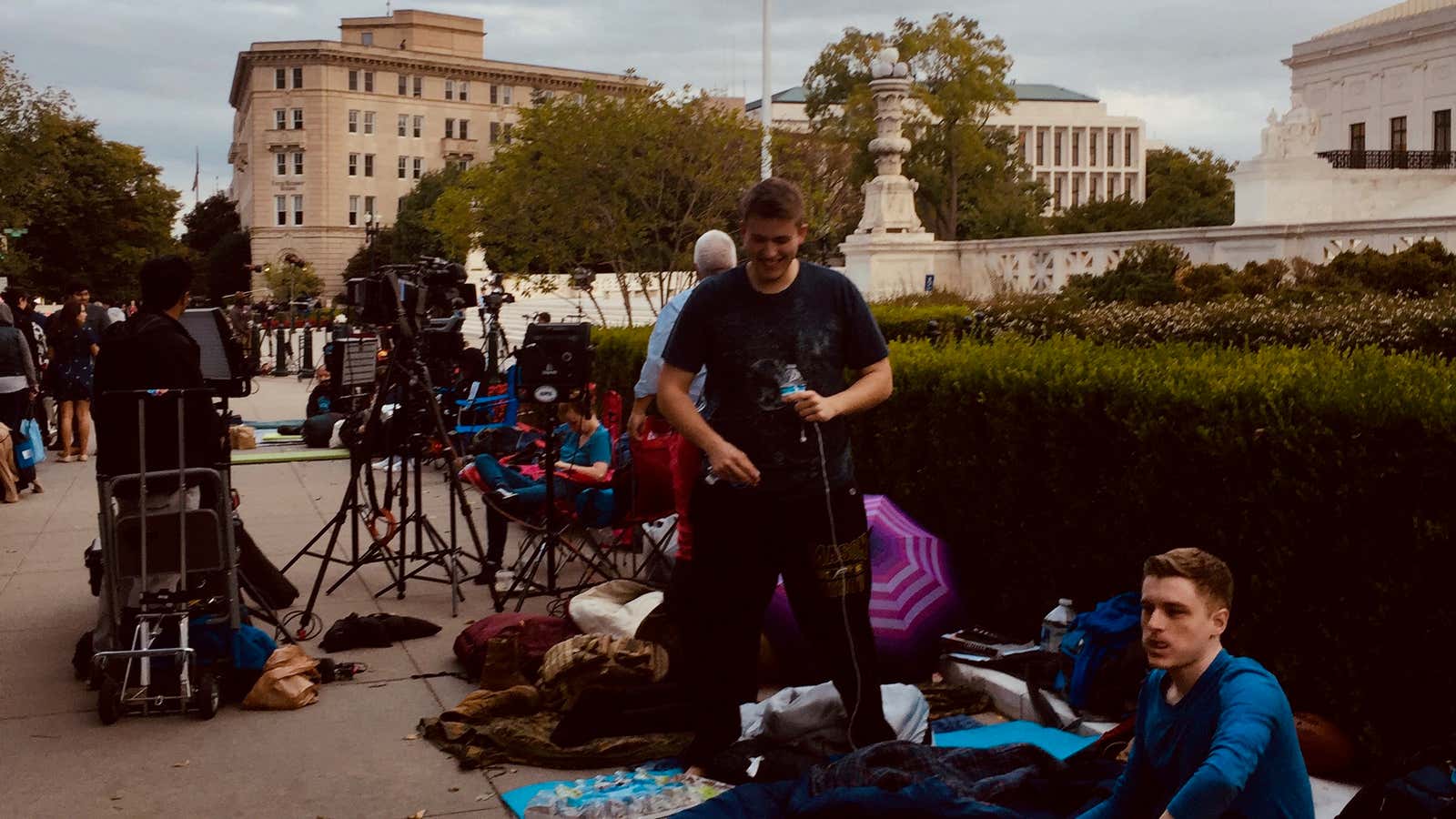The US Supreme Court will today hear a controversial matter about sex. Specifically, what the term means in federal civil rights law designed to protect against employment discrimination.
Two of the cases arise from allegations of termination predicated on homosexuality, and another on transgender status. The US government is arguing for the employers that the federal law (Title VII of the Civil Rights Act) did not envision LGBTQ+ individuals as protected when it was first passed in 1964. It says that if lawmakers want that protection included, they should write it into the legislation. The petitioners argue that their status falls under the sex discrimination protections.
The outcome will turn on what the justices think the meaning of “sex” was at the time of its passage and the extent to which they think the court is bound to definitions of yore. There is precedent that suggests they could adopt an expansive view of the law’s protections if they were so inclined. When the court granted review, it asked the parties to explain how transgender status should be viewed in light of its 1989 case, Price Waterhouse v. Hopkins, about a woman perceived as aggressive and denied a partnership in her firm. In that case, a plurality of the justices found that gender stereotyping is indeed sex discrimination, which bodes well for the terminated employees.
But a group of philosophers and theologians filed an amicus brief warning that accepting “gender identity” threatens Americans’ basic way of life. “[I]t suggests that the organic ties of vital human communities, such as the family, kinship group, and larger communities, which are very often mediated in subtle ways by sexual difference, are artificial and arbitrary, rather than natural.” They called gender identity and transitioning status “metaphysical constructs of dubious ideological and political origin.”
The cases are highly anticipated. Dozens of people were waiting outside the court on Monday, staking out spots for today’s arguments. One woman in a camping chair was shielded by a rainbow umbrella. A large group was huddled in a row of sleeping bags and blankets stretched out on the sidewalk, having breakfast in hooded sweatshirts. They had been at their perches since before dawn on Sunday.
“We’re here to get paid,” said Nate, a Pentagon contractor who preferred not to give his last nam. He said that he had 22 people camping for him, holding places in line for others, and had been doing this side gig for a few years. He said he started as a lone waiter, and then graduated to hiring teams who now wait with him to lock down multiple spots. The longest he’s ever waited for a seat ahead of a case is four days. He declined to disclose the price of his service. What he would say is, “We have no opinions on the matters. The cases we wait for tend to involve vitriol but I don’t take positions.”
Based on the docket, Nate and his posse will have lots of work in the coming term.
On Monday the court refused New York City’s request to dismiss a gun case involving the New York Rifle and Pistol Association that already has Americans up in arms. And last week, they agreed to consider the constitutionality of a Louisiana law that imposes onerous requirements on doctors performing abortions.
Also ahead, the fate of Dreamers, the name given to the children of immigrants who were raised in the US without proper documentation. Dreamers were granted reprieves from deportation in an executive order in 2012, and expanded in 2014, by then president Barack Obama. President Donald Trump later invalidated that order. On Oct. 15, the court will also consider matters out of Puerto Rico that implicate “The Insular Cases,” a series of early 20th century decisions on territorial law that the ACLU and others have argued are racist and dated.
The New York Times editorial board recently predicted that with new appointees Neil Gorsuch and Brett Kavanaugh settled in to their jobs now and so many contentious cases on the docket, including the Title VII cases, the court will likely take a sharp conservative turn. “Watch out, America. The Supreme Court is back in session,” the board warned.
That take may be slightly alarmist, however. If the last term’s decisions and the questions posed by justices at arguments so far this week are any indication—including Kavanaugh’s somewhat unexpected calling out of the racist roots of a Louisiana law, a contention that was not explored by the court’s liberals—they aren’t really so predictable.
